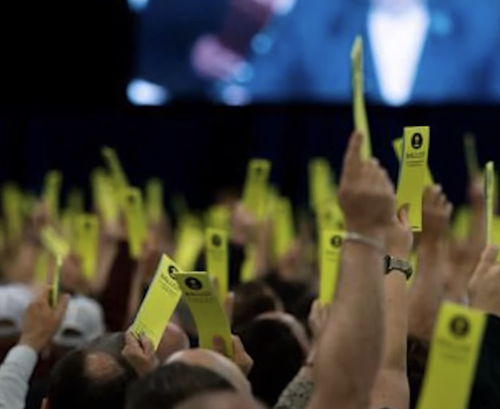May I have a brief moment, please, to ask a question to my fellow religion-beat reporters?
I have a style question for you folks. Has the ever-evolving Associated Press stylebook addressed the issue of whether the news beat on which we work is also called the “God beat,” the “Godbeat,” the “godbeat” or maybe the “gods beat”?
Just asking. I asking that question because many GetReligion readers may have seen the Religion News Service piece by Bob Smietana that ran with this double-decker headline:
After 20 years, Terry Mattingly bids farewell to GetReligion
Religion reporting still matters, Mattingly says, but the internet’s ‘preaching to the choir’ algorithms have won out
In that news piece for mainstream newspapers, Smietana went with “ ‘God beat’ specialists” when describing religion-beat professionals. That’s interesting, since I have always seen “Godbeat” as the official nickname (at least for old-timers like me).
I should stress that Smietana and I talked for 90 minutes for this piece, after quite a few long conversations over the years. It’s a remarkably kind piece, although I really wished some other GetReligionistas had been quoted.
I was glad that Smietana did this story. Last year, the media-ethics pro Aly Colon of Washington and Lee University asked me to nominate some speakers for a pair of Poynter seminars to help journalists who, while they don’t work on the religion beat, their work frequently veers into religion territory. Smietana was one of the first reporters I mentioned, stressing that “while Bob and I have argued about lots of things for many years” he is a “pro’s pro on the beat who knows his stuff and he needs to be there.”
In this RNS feature, Smietana wrote:
A proud curmudgeon, Mattingly is known for his outspoken opinions and blunt criticism, as well as his loyalty and willingness to make friends with people he disagrees with.










